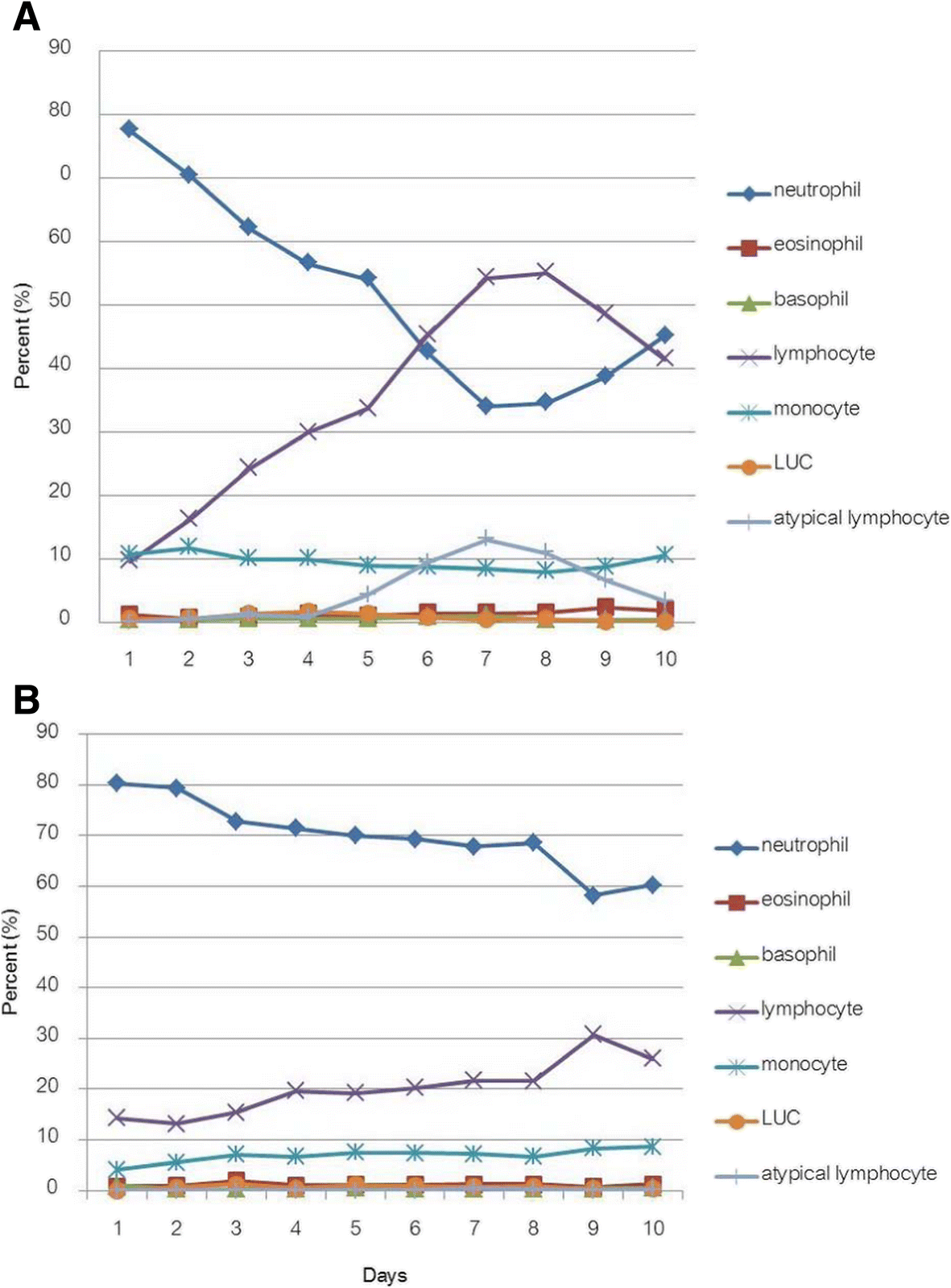.Q&A: Coding for CBC with and without differential JustCoding News: Outpatient, July 11, 2012Want to receive articles like this one in your inbox?QUESTION: Our laboratory medical director sent out a notification to our medical staff, patient care departments, and order entry personnel that a physician order that read “CBC” or “CBC with differential” would be completed as a CBC with automated or manual differential and coded using CPT ® code 85025 (blood count; complete CBC, automated Hgb, Hct, RBC, WBC, and platelet count and automated differential WBC count). Should we code 85025 when the order just reads CBC and when we do a manual differential with the CBC?
Complete Blood Count with Differential Does this test have other names?CBC w/ diff What is this test?This panel of tests looks for many illnesses in your blood. These include anemia,infections, and leukemia. It can help see how your overall health is.The test gets a lot of information from your blood sample:.The number and types of white blood cells (WBCs). Your body has five types of white blood cells. All play a role in fighting infections.High numbers of WBCs, or of a specific type of WBC, may mean you have an infectionor inflammation somewhere in your body. Low numbers of WBCs may mean you are at riskfor infections.The number of red blood cells (RBCs). RBCs carry oxygen throughout the body and remove excess carbon dioxide. Too few RBCsmay be a sign of anemia or other diseases.
In rare cases, too many may cause problemswith blood flow.How the size of your red blood cells varies. This test is known as red cell distribution width (RDW). For instance, you may havegreater differences in red blood cell size if you have anemia.Hematocrit. This means the portion of red blood cells in a certain amount of whole blood. A lowhematocrit may be a sign of too much bleeding. Or it might mean that you have irondeficiency or other disorders. A higher than normal hematocrit can be caused by dehydrationor other disorders.Hemoglobin. Hemoglobin is a protein in red blood cells. It carries oxygen from your lungs to therest of the body. Abnormalities can be a sign of problems ranging from anemia to lungdisease.The average size of your red blood cells. This test is known as mean corpuscular volume (MCV).
MCV goes up when your red bloodcells are bigger than normal. This happens if you have anemia caused by low vitaminB12 or folate levels. If your red blood cells are smaller, this can mean other typesof anemia, such as iron deficiency anemia.A platelet count. Platelets are cell fragments that play a role in blood clotting. Too few plateletsmay mean you have a higher risk of bleeding. Too many may mean a number of possibleconditions.Mean corpuscular hemoglobin. This test measures how much hemoglobin your red blood cells have.Why do I need this test?You may need this test if your healthcare provider thinks you have a blood disorder.You may need this test if you have:.Unusual bleeding or bruising.Infection or inflammation.Weakness and tiredness that doesn’t go away. These may be symptoms of anemiaYou may also have this test if your healthcare provider thinks you may have a certaindisease or condition.


HNL 2019 Frequently Used ICD-10 Medicare Coverage Policies. If a 'non-covered' diagnosis is used, the patient must be notified prior to CBC Testing: The AMA definition for CBC (Complete Blood Count) does not Coding Summary for Providers – UnitedHealthcareOnline.com. Medicare Coverage and Coding Guide. Medicare has limited coverage policies (MLCPs) for certain laboratory tests. Tests subject to an MLCP must meet medical necessity criteria in order to be covered by Medicare. MLCP tests ordered without a supportive ICD-10 code will not satisfy medical necessity and therefore will not be covered by Medicare.
Or you may have this test as part of a routine exam to checkyour health. The test may also be used to see how well certain treatments are working.What other tests might I have along with this test?Your healthcare provider may also order other tests if your results for this testare abnormal. These may include other blood tests, urine tests, and bone marrow orspinal fluid tests.What do my test results mean?Test results may vary depending on your age, gender, health history, the method usedfor the test, and other things. Your test results may not mean you have a problem.Ask your healthcare provider what your test results mean for you.Normal ranges for the different parts of a CBC are:.Red blood cells: 3.93 to 5.69 million per cubic millimeter (million/mm3).White blood cells: 4.5 to 11.1 thousand per cubic milliliter (thousand/mm3).Platelets: 150 to 450 thousand/mm3.Hemoglobin: 11.7 to 16.1 grams per deciliter (g/dL) in women, 13.2 to 17.3 in men.Hematocrit: 34% to 46% in women, 36% to 52% in menHow is this test done?The test is done with a blood sample. A needle is used to draw blood from a vein inyour arm or hand.Does this test pose any risks?Having a blood test with a needle carries some risks. These include bleeding, infection,bruising, and feeling lightheaded. When the needle pricks your arm or hand, you mayfeel a slight sting or pain.
Diagnosis Code For Cbc With Differential/platelet
Afterward, the site may be sore.What might affect my test results?Certain medicines might affect your results, so talk with your healthcare providerabout the medicines you are taking.How do I get ready for this test?You don't need to prepare for this test. Be sure your healthcare provider knows aboutall medicines, herbs, vitamins, and supplements you are taking. This includes medicinesthat don't need a prescription and any illicit drugs you may use.Medical Reviewers:. Haldeman-Englert, Chad, MD. Walton-Ziegler, Olivia, MS, PA-C.